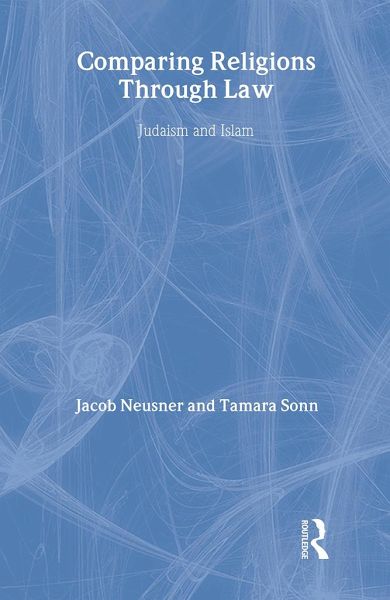
Comparing Religions Through Law
Judaism and Islam
Versandkostenfrei!
Versandfertig in 1-2 Wochen
167,99 €
inkl. MwSt.
Weitere Ausgaben:

PAYBACK Punkte
84 °P sammeln!
Comparing Religions Through Law offers a ground- breaking study which compares these two religions through shared dominant structures. In the case of Judaism and Islam the dominant structure is law. Comparing Religions Through Law presents an innovative and sometimes controversial study of the comparisons and contrasts between the two religions and offers an example of how comparative religious studies can provide grounds for mutual understanding.













